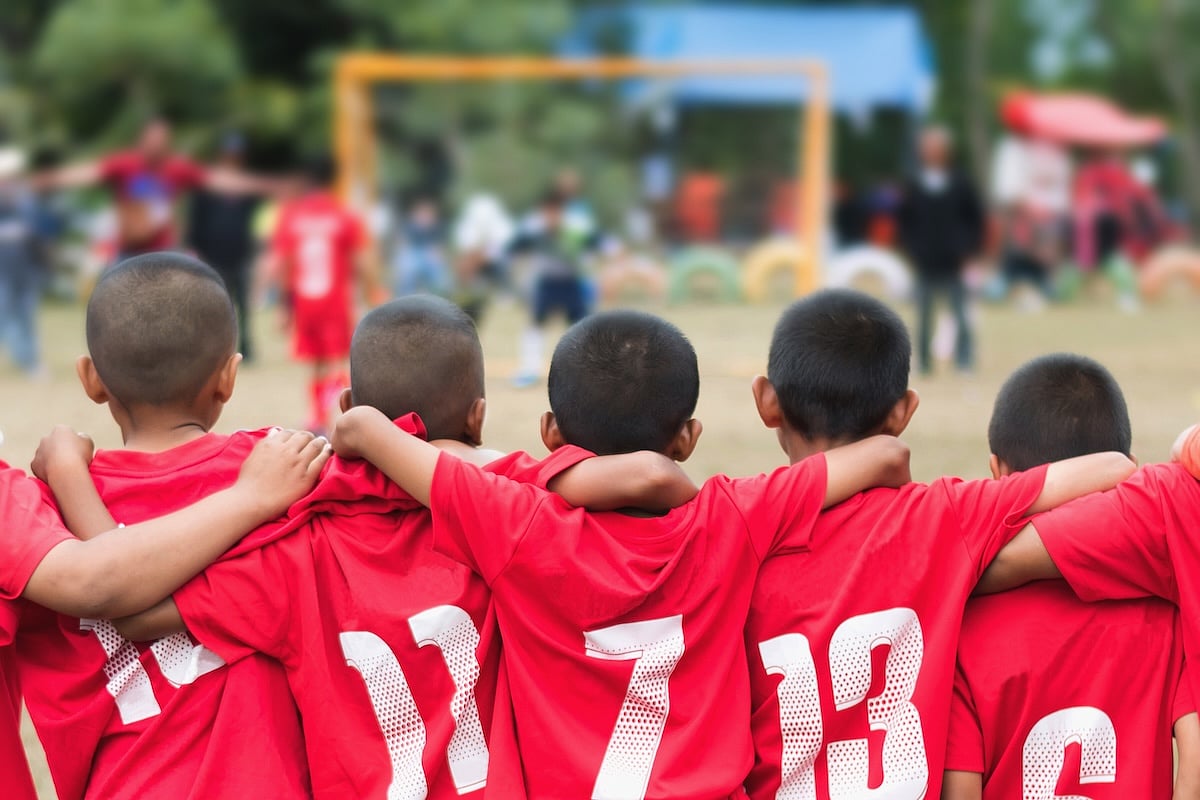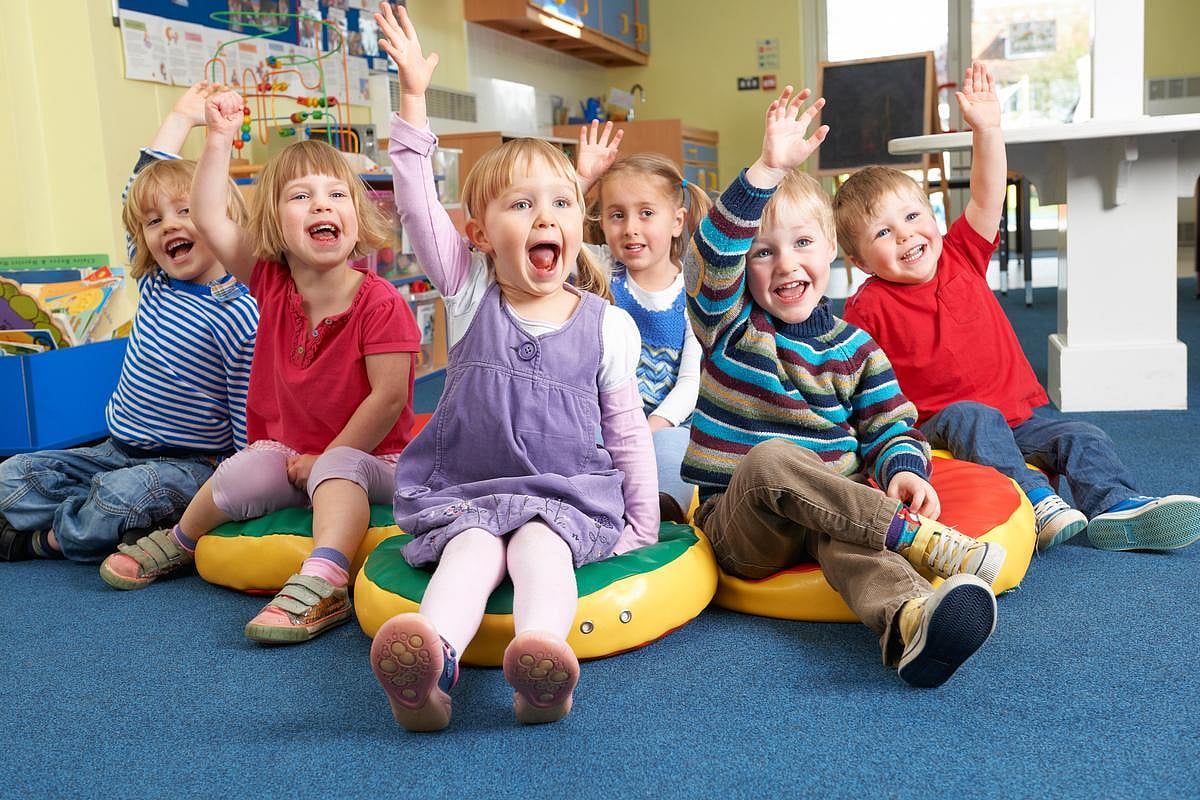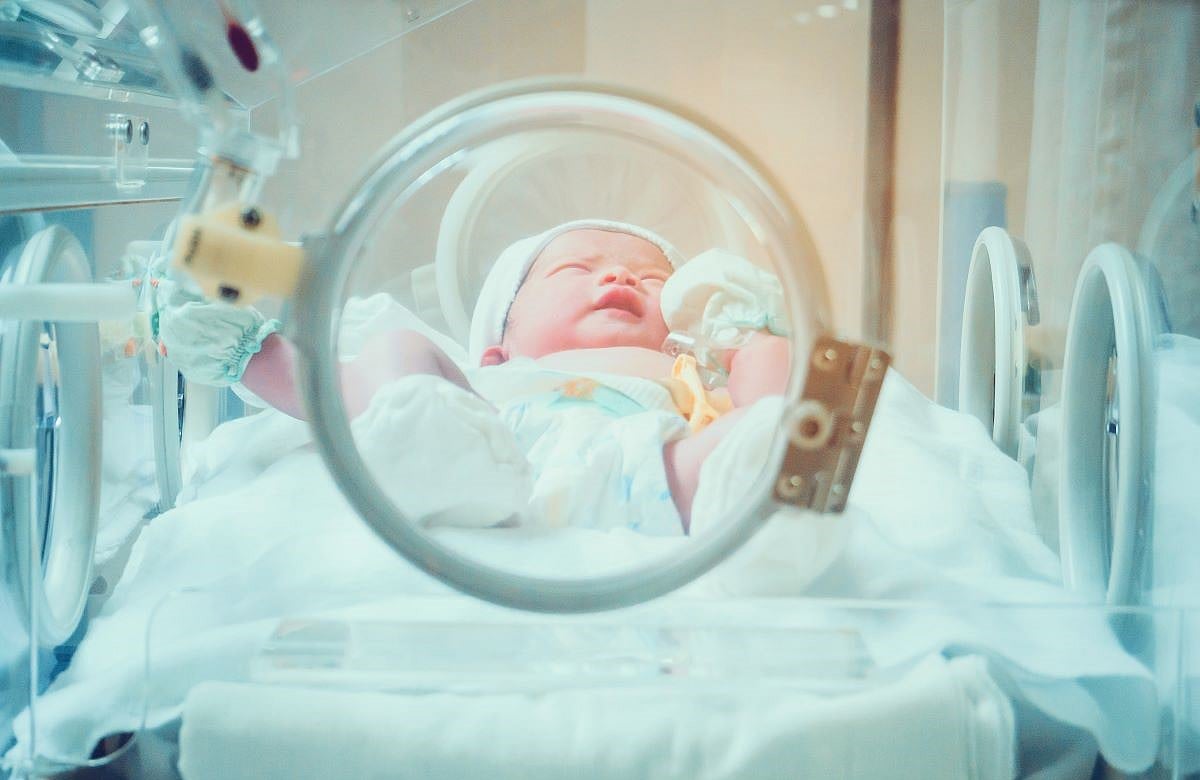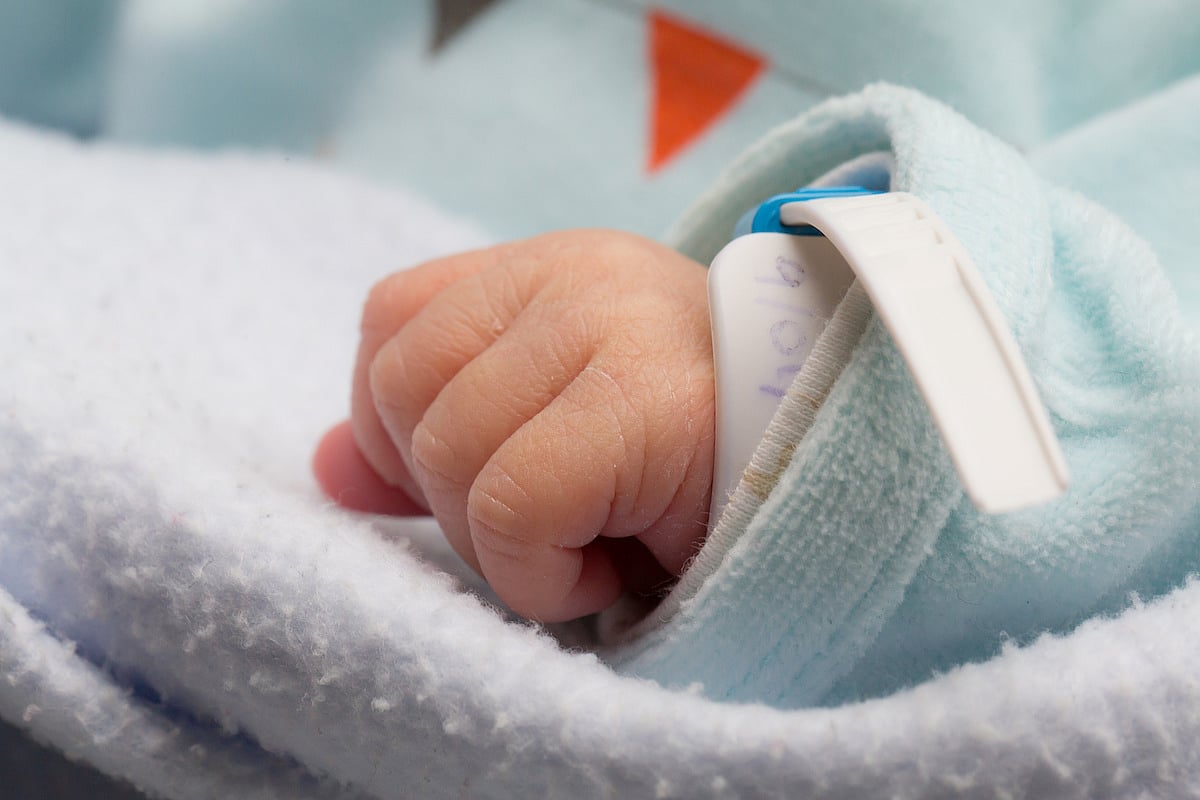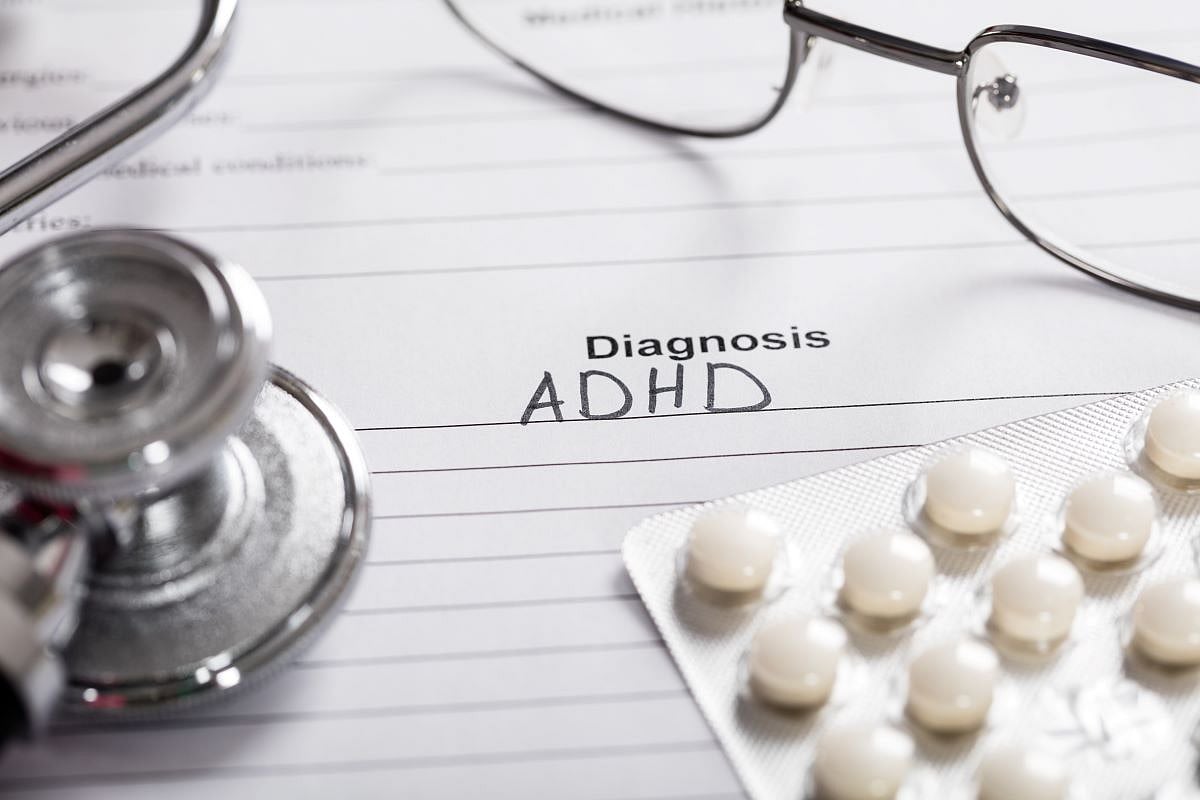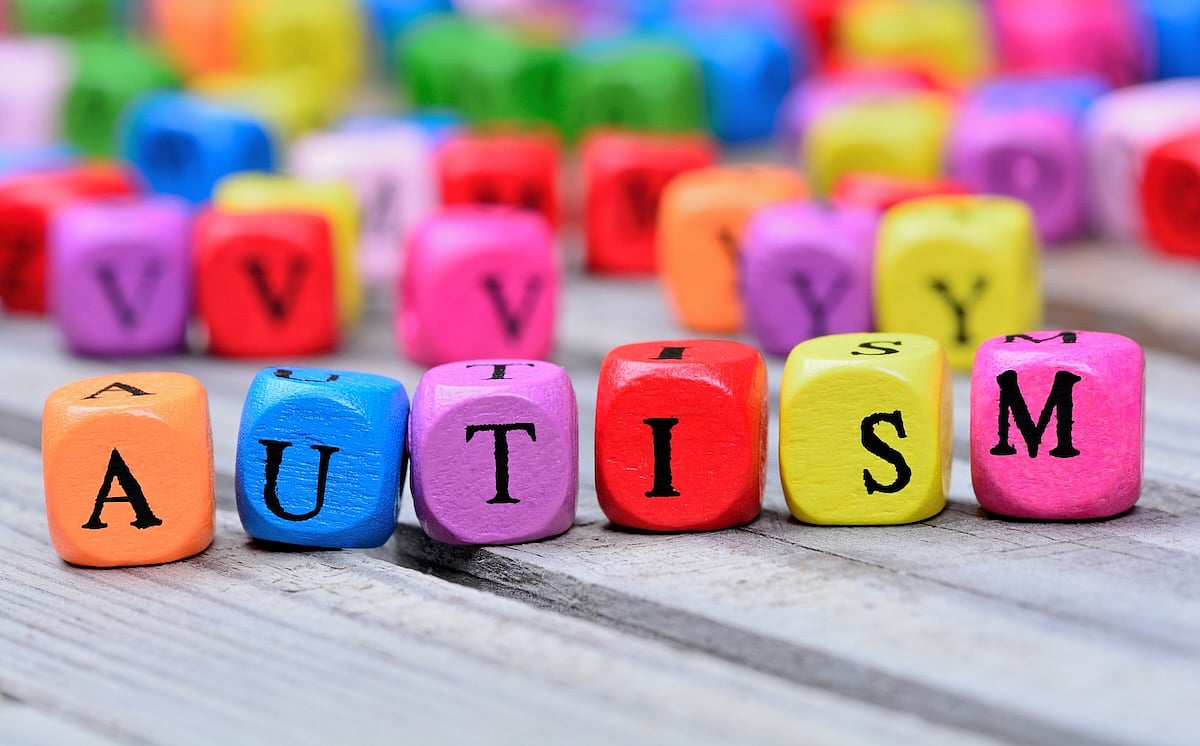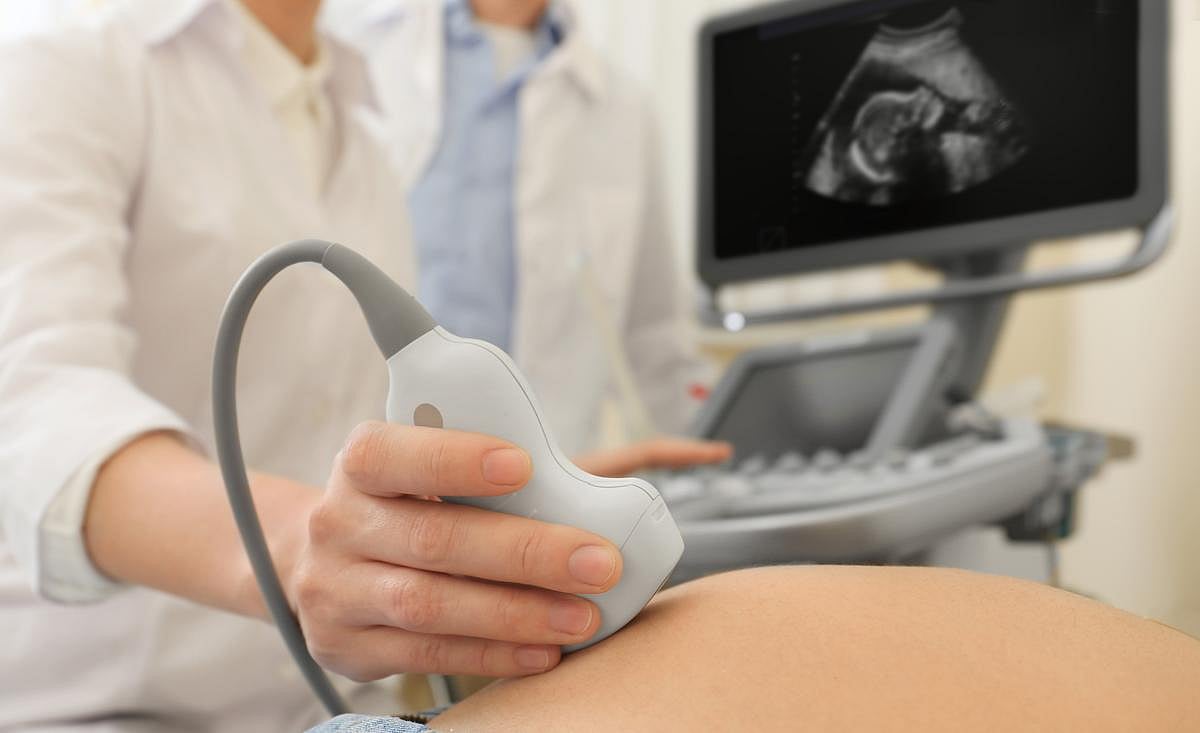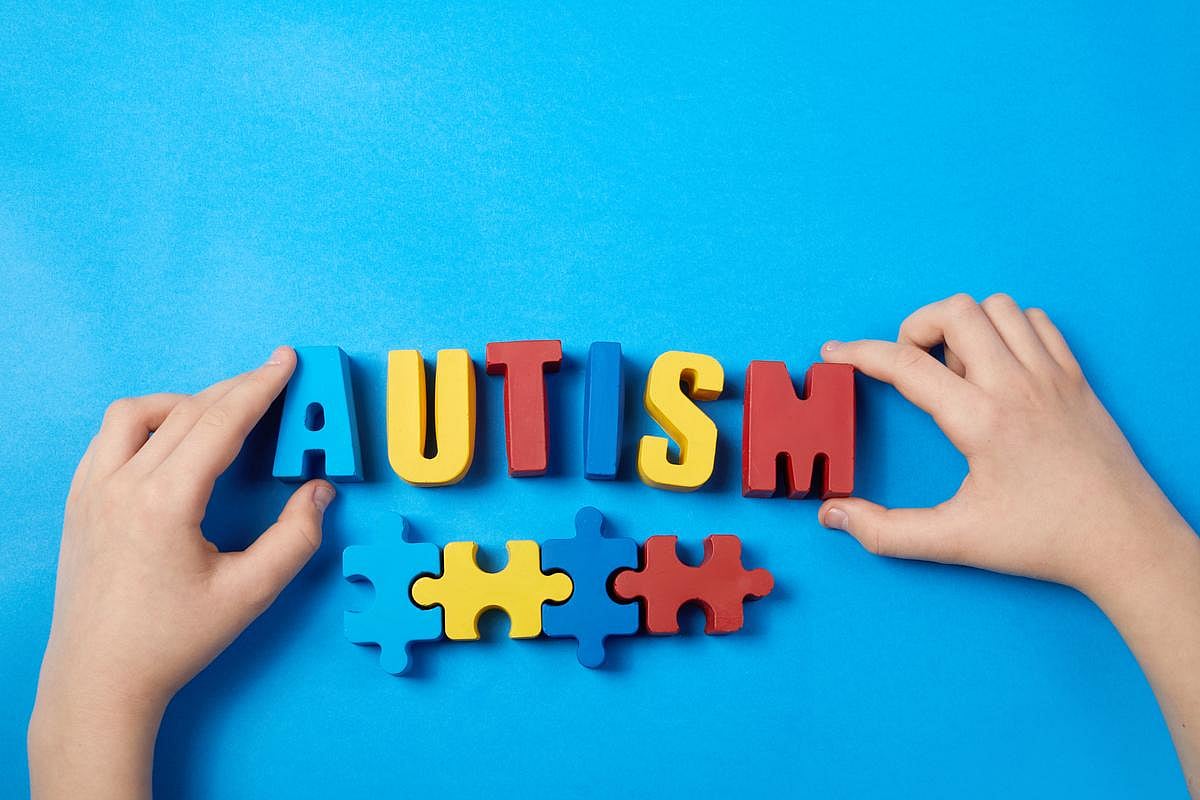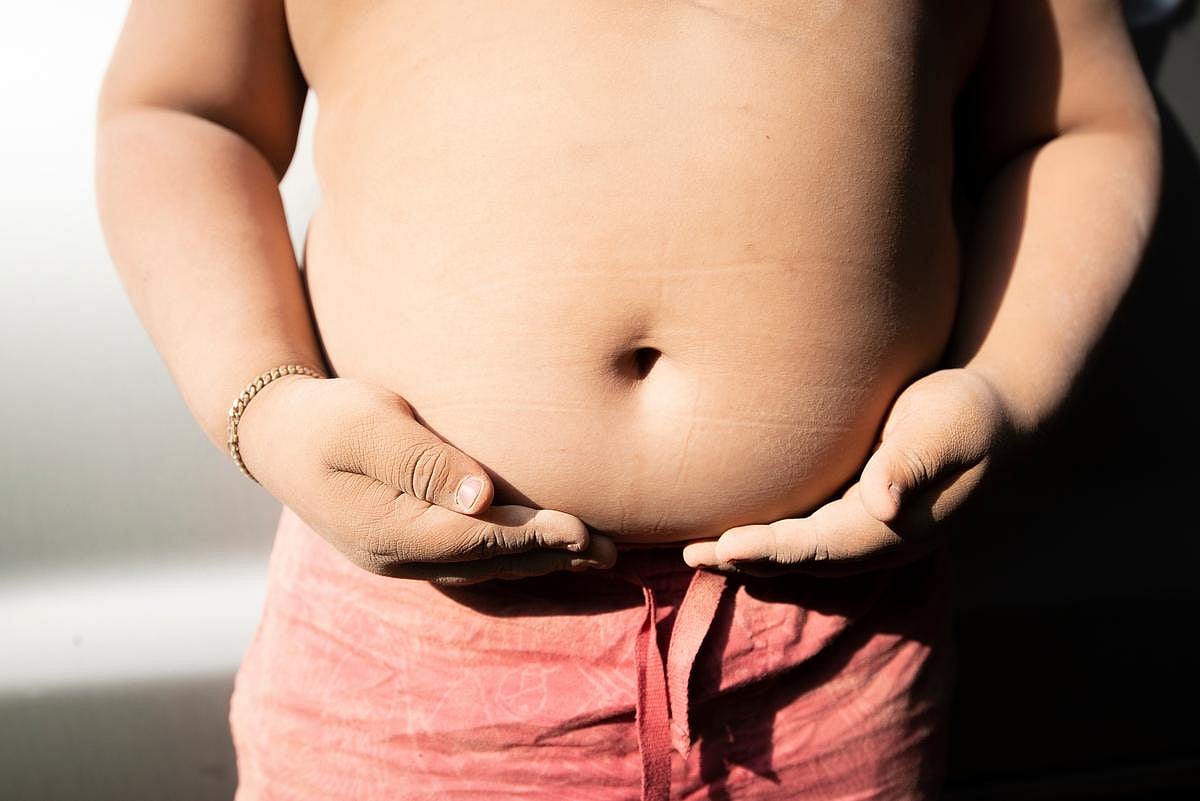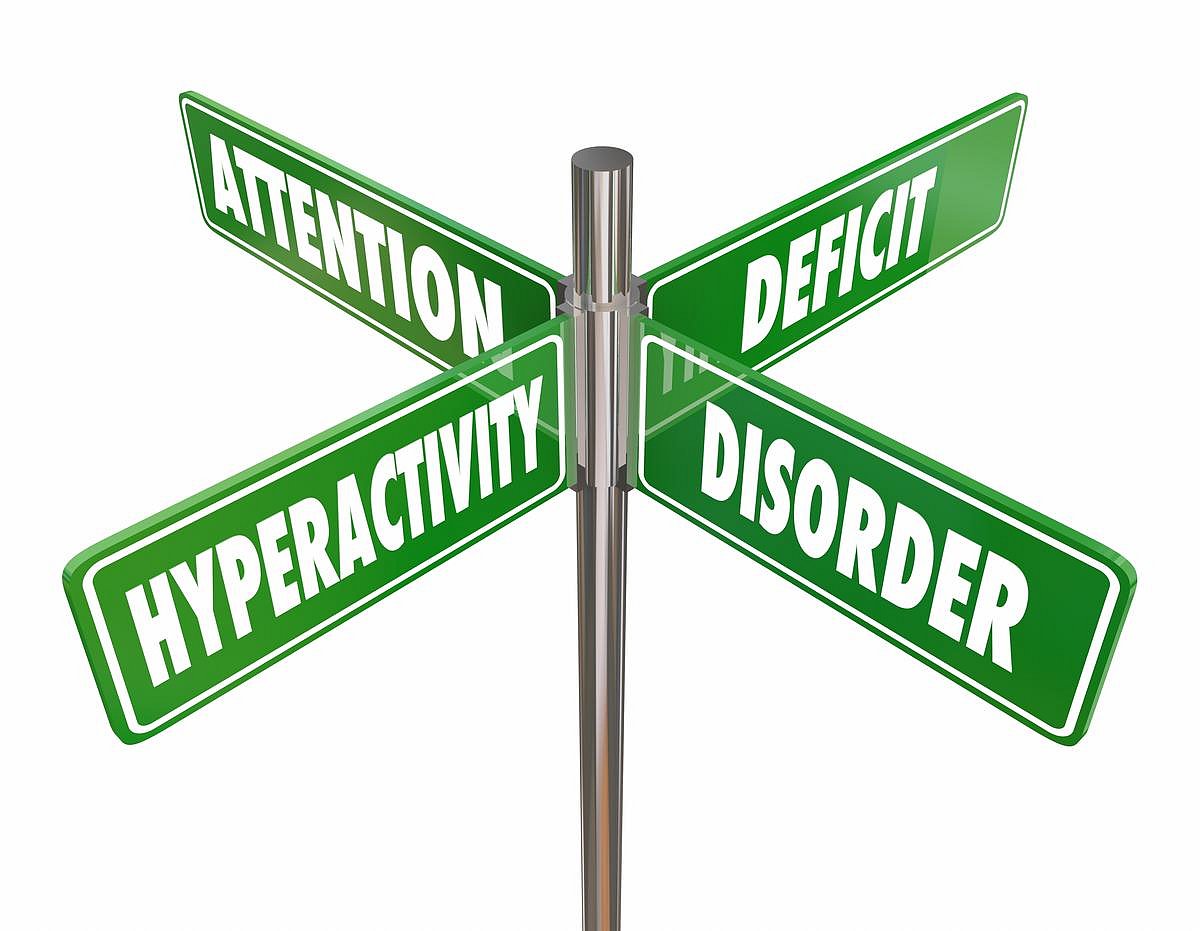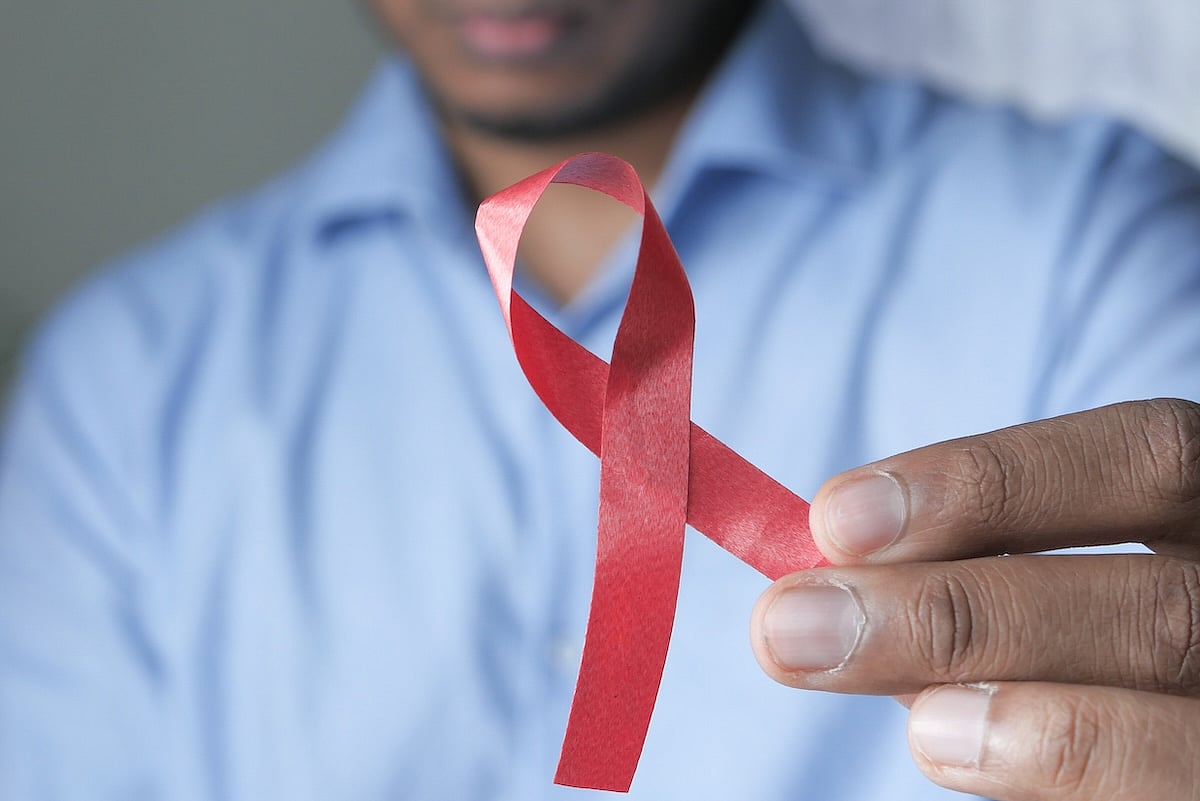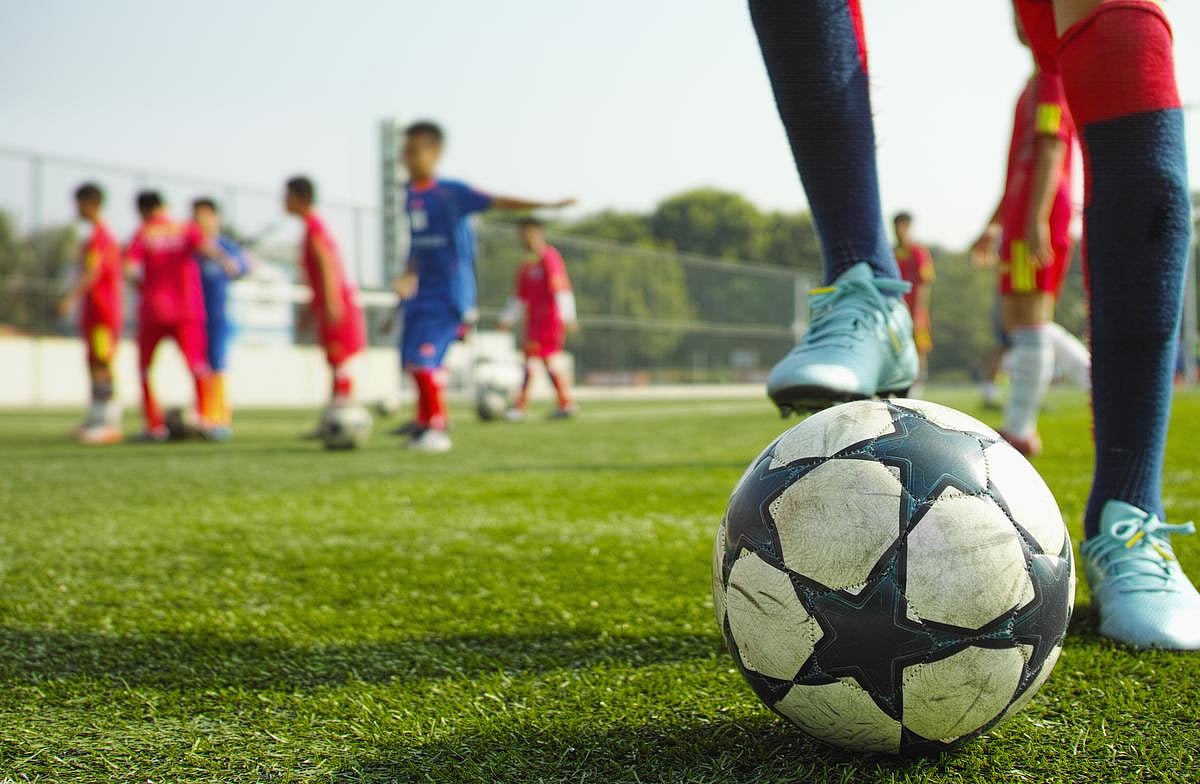Get Healthy!
370 Results for search "Child Development".
Health News Results - 370
A family’s financial difficulties might shape how an infant’s brain develops, potentially altering the course of their life, a new study says.
Babies tend to have signs of delayed brain development if their caregivers are struggling to make ends meet, researche...
- Dennis Thompson HealthDay Reporter
- |
- January 9, 2026
- |
- Full Page
Parents can better defuse their kids’ temper tantrums with the help of AI-powered smartwatch monitoring, a new study says.
Smartwatch alerts of an impending tantrum helped parents swoop in within seconds, cutting by more than half the duration of outbursts by young children, researchers reported Dec. 15 in JAMA Network O...
- Dennis Thompson HealthDay Reporter
- |
- December 16, 2025
- |
- Full Page
Worried your boy is going to be a difficult teen, in constant friction with parents, teachers and other authority figures?
Get him involved in sports, a new study suggests.
Boys who participated in organized sports between 6 to 10 years of age were less likely to show signs of oppositional-defiant disorder in their tweens, researchers reported Dec. 8 in the journal
Climate change could pose a threat to children’s intellectual development, a new study says.
Kids growing up under higher-than-usual temperatures – average temps above 86 degrees Fahrenheit – are less likely to meet developmental milestones for literacy and mathematics, researchers reported Dec. 8 in the
Video games often have a bad reputation as being a distraction, but a new study suggests they may help kids build important science skills.
University of Georgia researchers created an educational video game that helps elementary school students learn about the human body, health and how to use evidence the same way scientists do.
The game, called Virtual Vet, took seven years...
- I. Edwards HealthDay Reporter
- |
- December 8, 2025
- |
- Full Page
Ah, screens. The thing kids won’t put down, and parents can’t stop worrying about. But a new study suggests they may not be all bad after all.
Researchers at the University of South Australia analyzed data from more than 133,000 children and teens under age 18. They found that digital tools such as health apps, fitness trackers and online programs helped improve physical activ...
- I. Edwards HealthDay Reporter
- |
- November 22, 2025
- |
- Full Page
Some young children are virtual shut-ins, rarely leaving their homes to play, a new poll shows.
About 1 in 10 preschoolers and toddlers go outside to play once a week or less, according to results from the University of Michigan Health C.S. Mott Children’s Hospital National Poll on Children’s Health.
Playing outside has been shown to improve children’s mental and p...
- Dennis Thompson HealthDay Reporter
- |
- October 20, 2025
- |
- Full Page
Fetuses are eavesdropping on their mothers' conversations late in pregnancy, with her voice providing an important boost to brain pathways essential for language, a new study says.
Researchers observed this connection among a group of hospitalized premature babies who listened to recordings of their mothers reading to them, according to a report published Oct. 13 in the journal
- Dennis Thompson HealthDay Reporter
- |
- October 15, 2025
- |
- Full Page
Social media could be costing your tween some of their brain power, a new study says.
Children between 9 and 13 years of age who spent more time on social media performed worse on tests of reading, memory and language two years later, researchers reported today in the Journal of the American Medical Association.
“Thi...
- Dennis Thompson HealthDay Reporter
- |
- October 14, 2025
- |
- Full Page
WEDNESDAY, Oct. 1, 2025 (HealthDay News) — In a move that surprised many in the scientific community, the National Institutes of Health (NIH) has awarded $50 million to 13 research projects focused on the complex and credible causes of autism.
The grants were announced just days after top administration officials, including Health Secretary
Skin-to-skin contact might help kick-start brain development in preterm babies, a new study says.
Preemies born before 32 weeks showed stronger development in brain regions tied to emotion and stress regulation if they received more skin-to-skin contact, researchers reported Sept. 24 in the journal Neurology...
- Dennis Thompson HealthDay Reporter
- |
- September 25, 2025
- |
- Full Page
Children with chronic illnesses face extra challenges, and measuring stress through hair samples may help doctors predict which kids are at highest risk for mental health problems.
Researchers studied 244 Canadian children with chronic physical illnesses such as diabetes,
Expert consensus on the treatment of preschoolers diagnosed with attention deficit hyperactivity disorder (ADHD) is clear: Try behavioral therapies for six months before prescribing medications.
However, a new study found this guideline was followed in only 14.1% of U.S. cases involving children ag...
- Ernie Mundell HealthDay Reporter
- |
- September 2, 2025
- |
- Full Page
Pediatricians should screen children annually for mental or developmental issues, the American Academy of Pediatrics (AAP) recommends in a new clinical report.
The recommendation comes in response to a mental, emotional and behavioral health crisis that’s been brewing among America’s youth, the AAP says.
Up to 1 in 5 children in the U.S., including kids as young as 2, ar...
- Dennis Thompson HealthDay Reporter
- |
- August 25, 2025
- |
- Full Page
Exposure to a common pesticide during pregnancy can impair children’s brain development and motor function for years to come, a new study says.
The widely used pesticide chlorpyrifos (CPF) is linked to altered brain function and poorer fine motor control among children exposed to it while in the womb,...
- Dennis Thompson HealthDay Reporter
- |
- August 20, 2025
- |
- Full Page
Taking acetaminophen while pregnant might increase a child’s risk of autism or ADHD, a new evidence review says.
Analysis of 46 prior studies involving more than 100,000 participants found “strong evidence” that prenatal exposure to acetaminophen could increase the risk of developmental brain disorders like autism an...
- Dennis Thompson HealthDay Reporter
- |
- August 19, 2025
- |
- Full Page
As the new school year begins, experts say one simple habit can help kids succeed: Getting enough sleep.
The American Academy of Sleep Medicine (AASM) reminds families, teachers and communities about the importance of quality sleep for students of all ages.
“Resetting healthy sleep habits early can help students start the year focused, well-rested and ready to succeed,"
- I. Edwards HealthDay Reporter
- |
- August 17, 2025
- |
- Full Page
Kids’ academic test scores might improve if they boost their brain power with some high-intensity exercise before picking up a pen, a new pilot study says.
Children had significantly higher test scores after they spent nine minutes performing high-knee walking, jumping jacks, lunges and squats, researchers report in the journal
A child’s symptoms of autism might vary according to their parents’ exposure to workplace chemicals, a new study says.
On-the-job chemical exposure among moms and dads prior to a child’s birth was significantly linked to increased autism severity, worse behavioral issues and poor...
- Dennis Thompson HealthDay Reporter
- |
- August 13, 2025
- |
- Full Page
“Sticks and stones may break my bones, but words will never hurt me.”
This old saying is just plain wrong, a new study argues.
Verbal abuse inflicted in childhood can harm a person’s future mental health as much as physical abuse, researchers reported Aug. 5 in the journal BMJ Open
- Dennis Thompson HealthDay Reporter
- |
- August 8, 2025
- |
- Full Page
Children raised in unstable, unpredictable environments are more likely to exhibit mental and physical health problems as teenagers and young adults, a new study says.
Kids are more likely to develop behavior problems and mental health conditions after living in a chaotic household, researchers reported recently in the journal
An ultrasound is typically a parent-to-be’s first glimpse of their child.
New research suggests that the words hospital staff use to describe the fetus during an ultrasound can have an impact on later parenting — for good or ill.
For example, if an ultrasound’s poor quality is blamed on an “uncooperative” fetus, it might set the stage for less-inv...
- HealthDay Reporter
- Ernie Mundell
- |
- July 29, 2025
- |
- Full Page
Living near lush green spaces appears to reduce a child’s risk of ADHD and autism, even before they are born, a new study says.
Children had lower odds of developing brain development problems if they lived near green spaces as infants, or if their moms did before or during pregnancy, resear...
- HealthDay Reporter
- Dennis Thompson
- |
- July 28, 2025
- |
- Full Page
Care about your kid’s well being?
Then best not give them a smartphone until they’re a full-fledged teenager, a major new study says.
Kids given a smartphone when they were younger than 13 tend to have poorer mental health and well-being, researchers report in the
Even low levels of lead exposure can harm kids' working memory, potentially affecting their education and development, according to a new study.
Exposure to lead in the womb or during early childhood appears to increase kids' risk of memory decay, accelerating the rate at which they forget i...
- HealthDay Reporter
- Dennis Thompson
- |
- July 10, 2025
- |
- Full Page
Screens are a part of daily life for many families — but too much screen time in the early years could slow a child’s language development, a new study suggests.
That’s because young children learn best when they can touch, explore and play with real objects, Sarah Kucker, a ...
- HealthDay Reporter
- I. Edwards
- |
- July 6, 2025
- |
- Full Page
Violence, addiction and abuse can keep children a step behind other kids when it comes to their education, a new study says.
Children who’ve experienced only a single traumatic event are more than twice as likely to be chronically absent from school due to health problems, researchers reported in the journal
Few poor children with autism or intellectual disability are receiving recommended genetic testing, even though guidelines urge such tests, a new study says.
Fewer than 1 in 5 such kids covered by Medicaid received such testing, which can help guide their futures, researchers reported June 18 in t...
- HealthDay Reporter
- Dennis Thompson
- |
- June 23, 2025
- |
- Full Page
Harried parents aren’t wrong to suspect something’s changed in what is expected of them when it comes to their children’s sports activities, a new study says.
Modern-day parents are spending more time, money and resources on their kids’ sports acti...
- HealthDay Reporter
- Dennis Thompson
- |
- June 20, 2025
- |
- Full Page
Kids exposed to PFAS “forever chemicals” before birth have an increased risk of high blood pressure in childhood, particularly during their teen years, a new study says.
Teenage boys had a 17% higher risk of increased risk of elevated blood pressure if their moms had...
- HealthDay Reporter
- Dennis Thompson
- |
- June 13, 2025
- |
- Full Page
A “vicious circle” might exist between screen time and troubled children, a new evidence review says.
Screen time — particularly on video games — appears to contribute to emotional turmoil among children, researchers say.
Those troubled kids are then more likely to turn to screens to make themselves feel better, according to a study published June 9 in the jo...
- HealthDay Reporter
- Dennis Thompson
- |
- June 12, 2025
- |
- Full Page
Preschoolers who don’t naturally lose weight are more likely to develop full-fledged childhood obesity by age 9, a new study says.
Most kids tend to see their body-mass index (BMI) decline between ages 1 and 6, before starting to slowly gain weight as they grow, researchers reported recently in
Former U.S. Surgeon General Dr. Vivek Murthy is urging lawmakers to take stronger steps to protect children from the potential dangers of social media.
In a recent interview on NBC News’ "Meet the Press," Murthy said Congress has failed to act on what he described as a growing crisis.
“Congress has not st...
- HealthDay Reporter
- I. Edwards
- |
- May 27, 2025
- |
- Full Page
The first day of preschool can be tough — lots of new faces, unfamiliar sounds and the sudden goodbye to Mom or Dad can be overwhelming. But what if something as simple as the ceiling could make it a little easier?
New research suggests that reducing noise in preschool classrooms can help calm children and improve their ability to talk and listen.
The study — led by Ikur...
- HealthDay Reporter
- I. Edwards
- |
- May 25, 2025
- |
- Full Page
Social media does indeed appear to be making kids more prone to depression, a new study says.
Preteens are more likely to develop symptoms of depression as their use of social media increases, researchers reported May 21 in
ADHD stimulant meds don’t increase children’s risk of psychosis, a new study says.
Analysis of stimulant prescriptions among nearly 8,400 kids with attention deficit/hyperactivity disorder found no evidence that the drugs caused psychosis, researchers reported May 12 in the journal
- HealthDay Reporter
- Dennis Thompson
- |
- May 13, 2025
- |
- Full Page
Dads are supposed to be strong, steady and stoic, given how they’re portrayed in sitcoms and family entertainment.
But in real life, fathers sometimes falter -- and brushing it off can have a devastating impact on their kids’ development, a new study says.
Undiagnosed or unaddressed depression...
- HealthDay Reporter
- Dennis Thompson
- |
- April 29, 2025
- |
- Full Page
Babies and toddlers could be exposed to harmful chemicals while they sleep, due to compounds found in their mattresses, two new studies say.
Air samples taken from 25 children’s bedrooms revealed elevated levels of more than two dozen phthalates, flame retardants and other potentially hazardous chemicals, one of the studies says.
The highest levels of these chemicals were arou...
- HealthDay Reporter
- Dennis Thompson
- |
- April 22, 2025
- |
- Full Page
Fussiness, sleeplessness and unresponsiveness could be some of the earliest signs of autism in a baby, a new study says.
Using these signs, parents might be able to help detect potential autism within a child’s first year of life, researchers reported in the journal Pediatric Research.
That would be a ma...
- HealthDay Reporter
- Dennis Thompson
- |
- April 21, 2025
- |
- Full Page
Children who spend more time playing outdoors or participating in different sports tend to develop better motor skills as they advance through elementary school, a new study says.
Even a half-hour of independent outdoor play after a day at childcare makes a difference in ...
- HealthDay Reporter
- Dennis Thompson
- |
- April 17, 2025
- |
- Full Page
How children respond to movement could provide an early means of detecting autism, a new study says.
Children with autism are known to prefer watching repetitive movements over random movements, researchers said.
Using eye-tracking methods, a research team found that children with suspected ...
- HealthDay Reporter
- Dennis Thompson
- |
- April 11, 2025
- |
- Full Page
Nearly a half-million children could die from AIDS by 2030 if President Donald Trump follows through on plans to cut U.S. relief programs, a new study says.
As many as 1 million additional children will become infected with HIV and nearly 500,000 will die from AIDS by the end of the decade if the ...
- HealthDay Reporter
- Dennis Thompson
- |
- April 11, 2025
- |
- Full Page
Most low-birth-weight toddlers are not on track to be ready to attend school, a new study says.
Only one-third of babies born weighing less than 5.5 pounds are ready to attend school by ages 3 to 5, researchers reported in the journal Academic Pediatrics.
They tend to lag in early learning skills, self-regulation an...
- HealthDay Reporter
- Dennis Thompson
- |
- March 14, 2025
- |
- Full Page
Some women turn to weed during pregnancy to help deal with common issues like nausea, sleep problem and stress.
Unfortunately, they could be endangering their unborn child’s future behavior, a new study says.
Women who use cannabis either during pregnancy or aft...
- HealthDay Reporter
- Dennis Thompson
- |
- March 13, 2025
- |
- Full Page
The COVID-19 pandemic set kindergarteners’ development back in several ways, a new study says.
Post-pandemic kindergarten students on average scored significantly lower in language and thinking skills, social competence, and communication and general knowledge, when compared to pre-pandemic kid...
- HealthDay Reporter
- Dennis Thompson
- |
- March 13, 2025
- |
- Full Page
A mother’s diet during pregnancy can influence her child’s risk of ADHD and autism, a new study says.
In particular, the unhealthy hallmarks of a typical Western diet appeared to increase a child’s risk of developmental disorders, researchers reported in the journal Nature Metabolism.
“The gr...
- HealthDay Reporter
- Dennis Thompson
- |
- March 10, 2025
- |
- Full Page
A parent’s mental health appears to influence their kids’ chances of developing anxiety, ADHD and other behavioral disorders, a new study says.
Children were more than four times as likely to develop severe ADHD (attention-deficit/hyperactivity disorder) if their caregiver had poor or fair ment...
- HealthDay Reporter
- Dennis Thompson
- |
- February 24, 2025
- |
- Full Page
FRIDAY, Feb. 21, 2025 (HealthDay news) -- Superhero slugfests and TV tough-guy shootouts might have long-term effects on a preschool boy’s behavior, a new study says.
Boys exposed to violent media between ages 3 and 5 are more likely to develop aggressive and antisoc...
- HealthDay Reporter
- Dennis Thompson
- |
- February 21, 2025
- |
- Full Page
Trauma experienced by the oldest child in a family does not bode well for their younger siblings, new British data suggest.
A child's odds for developing mental health issues rose significantly if their oldest sibling experienced maltreatment, homelessness, injury or other forms of adversity in their first 1,000 days of life, the study found. It was published Feb. 3 in
Want your kid to do well in school?
Get them involved in an organized sport, a new study urges.
Boys and girls are both more likely to earn a high school diploma if they take part in team sports like soccer or artistic sports like dance or gymnastics, researchers reported in a study published recently in the journal Children...
- HealthDay Reporter
- Dennis Thompson
- |
- January 22, 2025
- |
- Full Page


